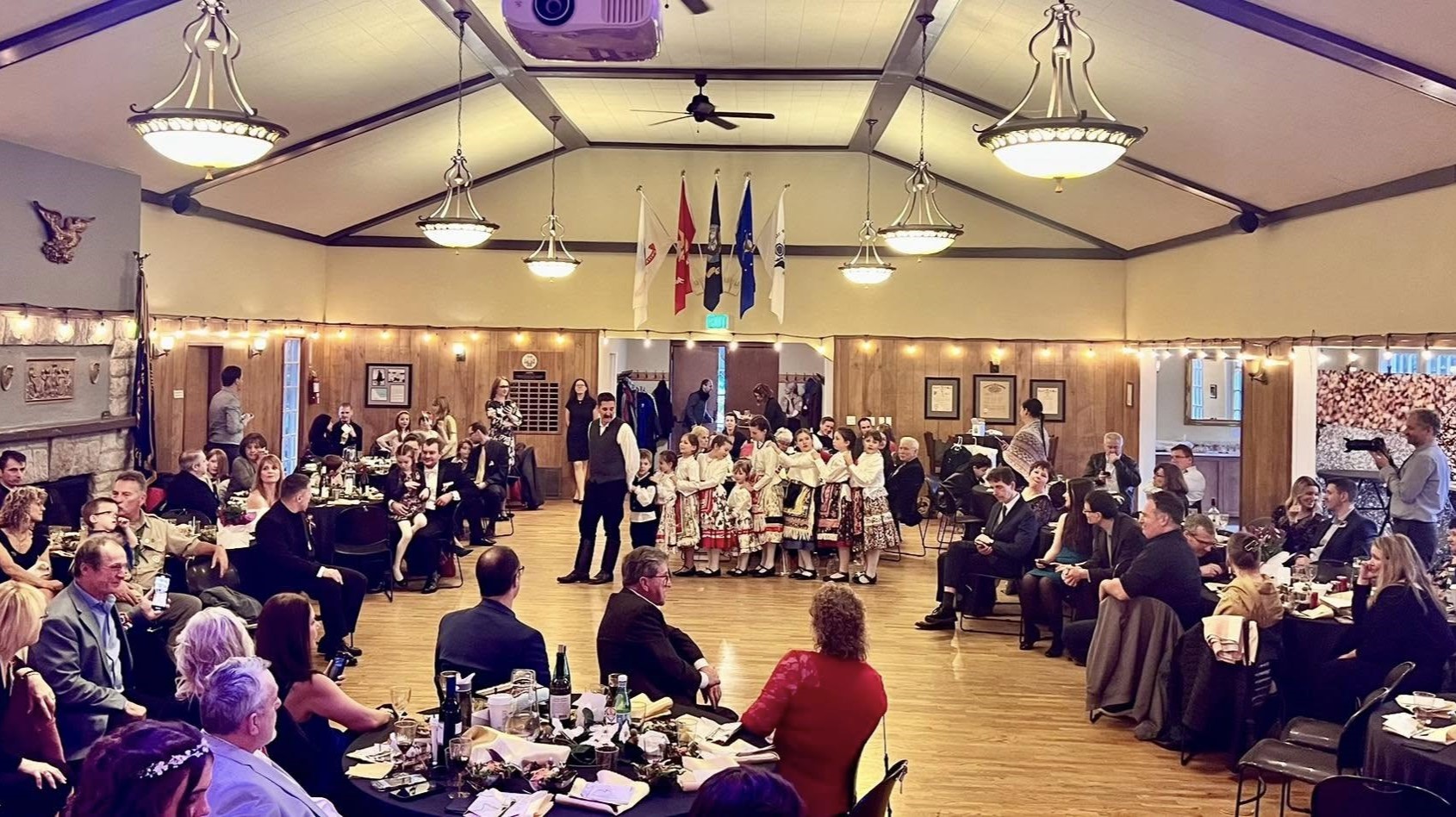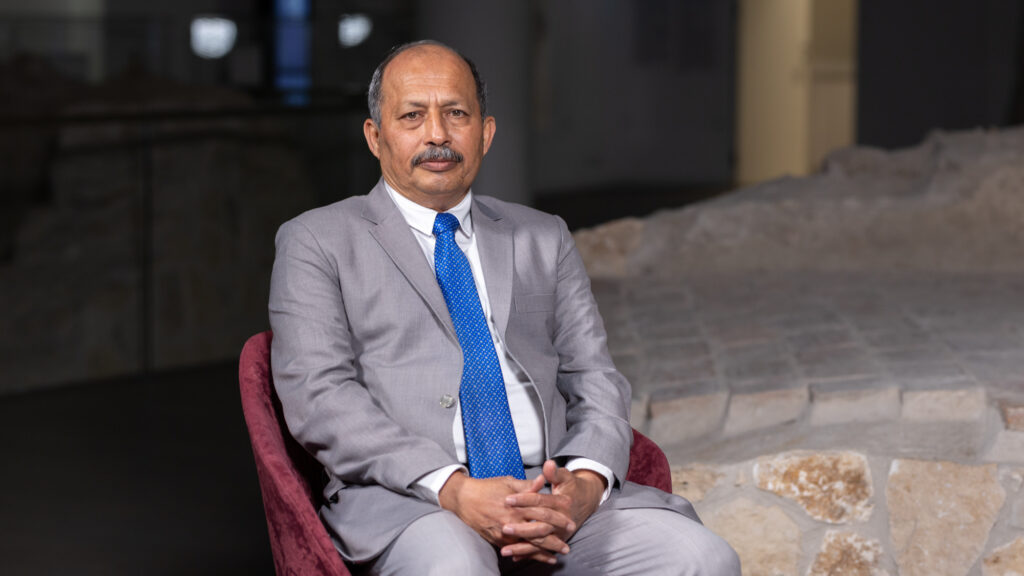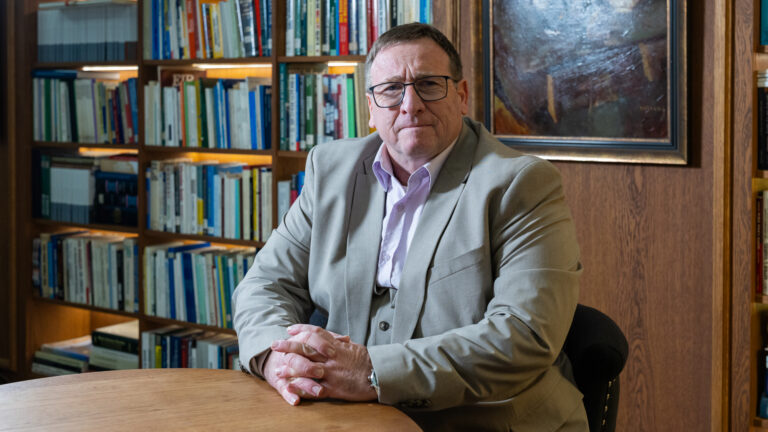The Hungarian American Association of Washington is an umbrella organization founded in 1984 that offers Hungarian cultural, educational, and social programs on the northwest coast of the U.S. Communications Chair Zsuzsanna Kensell moved to Seattle, Washington six years ago with her American husband and two young daughters, after spending two years in Portland, Oregon. Grateful for all they received over the years from the local Hungarian community, two years ago she accepted the invitation from the then-new president, Borbála Görög, and is willing to take over the presidency as soon as Borbála is unable to continue it for family reasons.
***
When did you move to the U.S.? How did you end up on the West Coast?
My American husband, Scott, had spent a year in Hungary as an exchange student and planned to return there to study. Therefore, he wanted to improve his Hungarian. I had studied Hungarian language and literature, and had foreign friends and students to whom I taught Hungarian as a foreign language, so I wanted to strengthen my English. When we started corresponding, I was living in Finland. Eventually, we met in person in Hungary—he had come to study there, while I moved back—and we fell in love. When our first daughter was born and I was on maternity leave, he was working remotely, and we realized that neither of us was tied to a specific location for work. We had never lived in the U.S. together as a family, so we decided to give it a try. We chose Portland, Oregon, and spent a trial month there. We really liked it, so we moved in June 2017. In November 2019, we moved to Seattle, Washington.
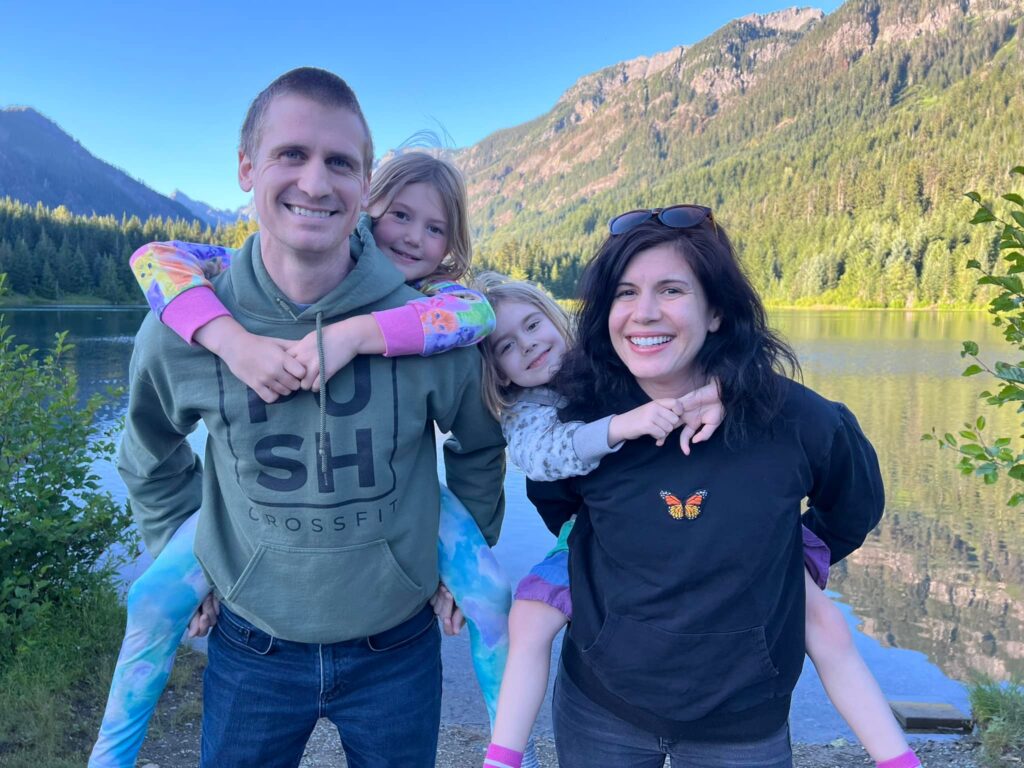
Why Oregon, specifically Portland? Does Scott have any ties there?
No, he grew up in Tennessee, his siblings are scattered across the U.S., and his parents have been living in Florida for more than a decade. We made a list of criteria that were important to both of us—for example, we wanted to live in a larger city, but not in one as huge as New York. We were drawn to Oregon by the West Coast mentality, the weather, and the proximity to nature, and we also knew that there was a small Hungarian community in Portland. Austin, Texas, was also a candidate, but the extreme heat there discouraged us. California sounded great too—my brother-in-law lives there—but it’s extremely expensive, and we didn’t want to struggle to make ends meet, especially since we both had good jobs in Hungary and lived quite comfortably. We ended up really liking Portland. We moved to Seattle after only two years because Scott received a great job offer there. I think most Hungarian families who end up in this region do so because either the husband or the wife gets a good job opportunity. Typically, only a small percentage of Hungarians consider the northern part of the West Coast. The East Coast is much closer to Europe, and when people think of the West Coast, California is what usually comes to mind.
What about you? Were you able to work while raising your children?
In Portland, I worked briefly—just for three or four months—at a software company in a support role, because I really wanted to have American work experience on my resume, just in case. Afterwards, I stayed home with the children for several years. When we moved to Seattle, I planned to start working, but the COVID pandemic hit, and very strict regulations were implemented here. In early 2021, I worked remotely for an Austrian software company for three and a half years. I’m now looking for a new job while focusing on volunteer work. Our non-profit umbrella organization, the Hungarian American Association of Washington (HAAW), is currently led by Borbála Görög, who is expecting her third child. She asked me to take over as president, and she plans to continue supporting my work as vice president from behind the scenes.
Before we get into that, tell us about the Hungarian community in Oregon.
The Hungarian community in Oregon is smaller—roughly just a few hundred—but even though we live in different states, the connection between us is quite strong, as Seattle and Portland are only about three hours apart. The scout troops are very close-knit—not just here, but along the entire West Coast, including California. We are especially grateful to Csaba Orbán, the commander of the local István Fekete Scout Troop No. 45, who received the Hungarian Order of Merit in 2024 for his selfless voluntary work. Not everyone in the diaspora feels the same attachment to their Hungarian identity, but Hungarian weekend schools, scouting, and folk dance are all powerful, unifying shared experiences. These are the core elements of HAAW as well. When we lived in Portland, there was a weekend Hungarian school, which eventually ceased operations, but I’ve heard there are now efforts to restart it. There is no folk dance group in Portland, but there is one in Seattle. There are no Hungarian churches in either location, but Hungarian-language services are usually held at Easter and Christmas by guest priests. We don’t attend church, but I keep track of these events, followed by community gatherings, too, because as a Communications Chair, I’d like as many people as possible to be able to participate.
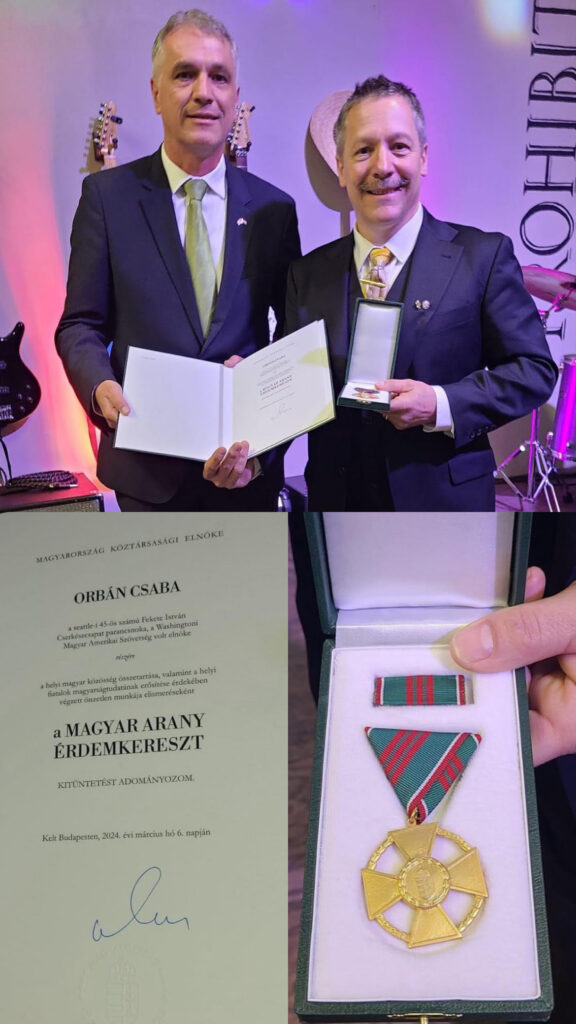
What about the Hungarian community in Seattle?
I send our newsletter to about 500 people, though not everyone subscribes—there are many ‘hidden Hungarians’ who only show up here and there. I think there are around 1,000 Hungarians in total in Washington State. When we moved to Seattle, our daughters were four and two, so one of our first steps was to find the local weekend Hungarian school and scout troop. This is the easiest way to make connections and friends in a new place. Membership at the local scout troop had declined during COVID, but they kept it going with energy and dedication, either online or outdoors. We joined in 2021, when many other families also returned. Masks were still required for a while, but our daughters were old enough to handle it. The scout troop currently has 48 scouts, including seven active adult leaders, and an average of 35 scouts attend the sessions.
The weekend Hungarian school, currently led by Anett Barabás, has about 30–35 children and five to seven teachers. There’s a Bóbita playgroup for infants, a preschool group, and two school-age classes. A few years ago, I started teaching the six- to eight-year-olds, focusing on reading and writing skills. It’s an exciting challenge, because the children’s Hungarian language abilities vary greatly: some don’t use Hungarian at home at all because one of the parents doesn’t speak it, others do speak it but are reluctant to use it, and there are some who speak, write and read Hungarian fluently and without an accent. Still, I truly enjoy and find it meaningful because it helps the kids connect with one another. At our last session this year, I asked them what they thought about the past year. Most of them said that the best thing about school was being together. That was really moving; I think that’s the true essence of it all. Of course, it’s important to celebrate Hungarian traditions—like dyeing Easter eggs and organizing a sprinkling, or singing on Mother’s Day—and it’s valuable for them to learn to read and write in Hungarian, but I believe the most important aspect of these children’s communities is that they form bonds and receive a lifelong joint experience they can later look back on fondly as adults—and thus they’re much more likely to bring their own children to weekend Hungarian school one day.
‘Most of them said that the best thing about school was being together’
Running a weekend Hungarian school in the diaspora requires a completely different mindset than at a school in Hungary, where knowledge transfer is the main focus and expectations are very different.
Exactly. It’s just not possible to achieve the same level of knowledge transfer as in Hungary when we meet for two hours every other week. If someone wants their child to speak, read, and write Hungarian fluently and to learn Hungarian history and literature to the level of schoolchildren in Hungary, the parents need to invest a huge amount of additional time—it can’t be expected from the school.
And since we’re talking about reading, I’d like to mention that we have a Hungarian library with over a thousand volumes. Many families with children use it, since the weekend school and scouting—held every two weeks—are the perfect opportunity for parents to chat in the library and also to check out books for themselves or for their kids. The children also love browsing the available children’s and young adult books. Moreover, our librarian team, led by Bernadett Dósa, recently launched a book club. The first meeting already took place, the second is scheduled for June, and it will resume in the fall.
The Forgatós Dance Ensemble is also part of HAAW, right?
Yes. The group is led by Tibor Horváth—his mother, Márta, was one of the founding members of our association—and Flóra Carlile-Kovács. Bea Ringbloom teaches the children’s group. During the school year, dance rehearsals for adults are held every Saturday morning, while the children’s group meets every other week so as not to conflict with Hungarian school or scouting sessions. Members live across a wide area—from Port Townsend to Kent—but they still attend rehearsals regularly and with great dedication, despite the long distances. The group was founded in 2017 with only a minimal costume inventory, but since then, they’ve invested significantly each year in expanding their wardrobe and acquiring authentic Hungarian folk costumes. They also organize sewing afternoons to ensure they can perform in regionally appropriate attire. Over the years, their costume collection has grown so large that in 2024, dancer András Záborski built a multi-level storage system for them in their rented storage space.
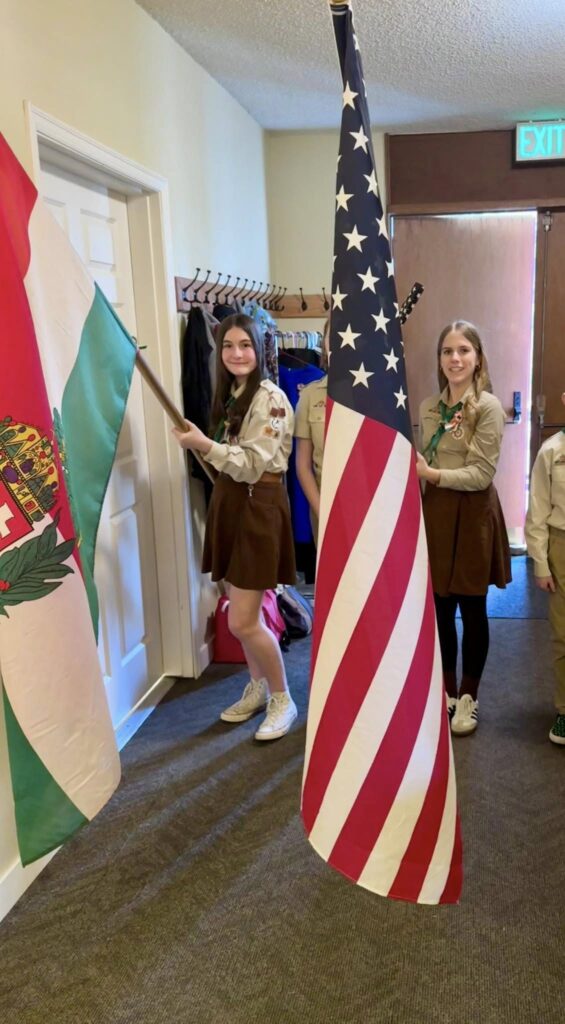
Each Thanksgiving, they organize a three-day dance camp on Vashon Island, open to anyone who wishes to join. They also host several táncház (folk dance house) events throughout the year, with live music provided by Forrás Banda, a West Coast band whose members live in and around Seattle and Vancouver. The group concludes the school year with a summer camping trip, and they also organize the annual Ti-Ti Camp, one of the few Hungarian folk dance camps in the U.S. They represent Hungarian culture at various events, for example, at the Northwest Folklife Festival, the SIIF Children’s Festival, and Hungarian heritage festivals in San Francisco, California, Albany, Louisiana, and Vancouver, Canada.
HAAW owns a property called MagyarFöld (HungarianLand). Why?
Since the founding of the association, it has been a major dream and desire of the members to one day have their own ‘home’. That’s why they prudently set aside funds for a property purchase, and in 2020, we bought a 7.85-acre (31,768 m²) plot of land in Cle Elum, about a 70-minute drive from Seattle. There’s still a lot of work and dedication needed to develop the property, but we’ve taken the first step toward our goal—which is building and operating a Hungarian House in the region. We’ve become the owners of a beautiful and expansive parcel of land, covered with trees and bushes, where one can peacefully enjoy nature and the views of surrounding ridges and snow-capped mountain peaks. So far, a small storage shed has been built there, adorned with beautifully hand-carved Hungarian motifs. There’s also a larger trailer on-site where people can sleep, electricity has already been installed, and our team is currently working on developing sewage infrastructure. The scouts are already using the site—for example, their next hike (portya) on 15 June and their usual summer camp at the end of August will be held there. Decisions related to MagyarFöld are made by a team of four to five people. This team is also led by the previously mentioned Csaba Orbán, who is a key character in the entire association—a kind of ‘solid rock’ for us all. He organizes the so-called community work days at the property. However, financial decisions still need to be approved by the association’s leadership. We strive to support the work of all our groups and to coordinate events and grant applications. And since I’ve mentioned Csaba, I’d add that his wife, Enikő, is always by his side, investing just as much time and energy, for example, as an adult scout leader.
How did you become the communications director?
In 2023, HAAW’s leadership was completely renewed. The previous board was made up of members of a slightly older generation whose children had since grown up. After many years of service and major contributions, they were ready to pass the torch. Bori stepped forward as a candidate for president. She moved to the U.S. with her family in 2016. After five years in New York, they relocated to the Seattle area in 2021. Bori taught for two years at the Arany János Hungarian Preschool and School in New York and was also a member of the school board. Their two children are both members of the Seattle Hungarian School and the local scout troop, and they are proud of their Hungarian roots. Bori has a wonderful personality that is suitable for the president’s role. She’s especially gifted at building relationships and finding common ground with all generations. Here in Seattle, there are more Hungarians than in Oregon, but far fewer than in the New York area, so it’s important to stay connected with all generations and to accept that each relates to their own Hungarian identity and the community in different ways. Bori is very open to everyone’s ideas and constructive feedback. When she took over the presidency two years ago, she handled the challenge exceptionally well. Though former board members remained in the background and were available for advice, the continuation of the association was no longer their responsibility—yet, naturally, the community had certain expectations toward the new leadership. We did face challenges, but we were able to hold all of our traditional events, and, overall, I think we made it through that first year quite successfully and learned a lot from it. Bori was re-elected afterwards.
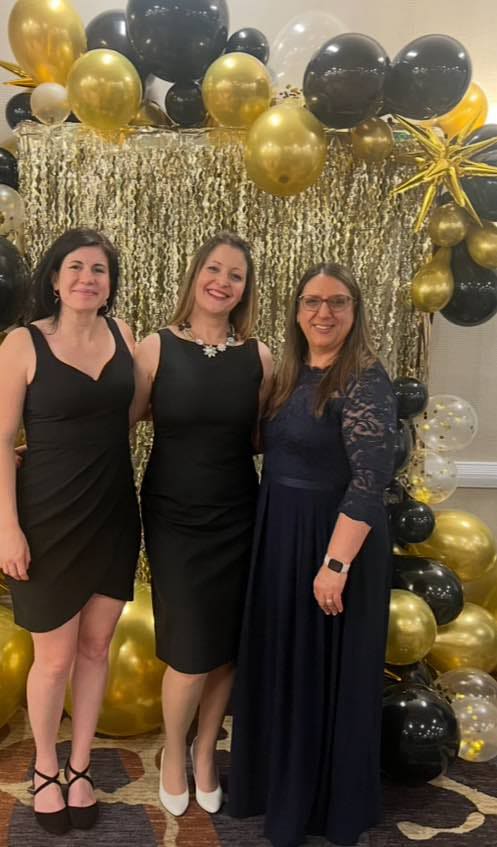
Since Bori and I are good friends, we talked a lot about the association’s future while I was trying to volunteer as much as I could. When she became president, she told me she needed a communications chair—someone to handle the newsletter and the website. To me, the most important thing is that members of the association and the broader Hungarian community, as well as anyone interested, always receive information about what’s happening in our community and are encouraged to take part in our events. Since not everyone is able to attend in person, I send out a retrospective newsletter twice a year, in which each group summarizes what’s happened with them during that semester.
What kinds of events do you organize, and where are they held?
We rent the basement rooms of a local American church for our regular activities, and occasionally we use the upstairs space for larger gatherings. On 20 August, we hold a picnic where the current president cuts the new bread. In September, we have our school-year opening followed by a community potluck, where everyone is happy to reconnect after the summer. In October, we commemorate the 1956 Revolution, trying to involve the local 56ers. Recently, one of our volunteers conducted interviews with them, and we listened to their stories and asked questions of those who were able to attend.
In November, there’s the Diaspora Camp, organized by Andi Szirbik with help from the scouts and a KCSP scholarship fellow. Andi also lived in New York and has two older children who are both scouts. While she lives in Spokane, which is three hours away, she remains extremely active in our organization. She also volunteers in Oregon, since she has great relationships with the Hungarian community in Portland, too. The Diaspora Camp always takes place over the Thanksgiving weekend, so unfortunately, we never attend, because for my husband’s American family, Thanksgiving is almost as important as Christmas is for Hungarians. But many Hungarian families don’t have those same American family ties, so approximately 25 children and eight adults are able to attend each year. As mentioned before, the Forgatós Dance Ensemble organizes its own camp on the same weekend, and participants from the Diaspora Camp often join them for a full-day folk dance workshop. In December, the traditional Christmas dinner includes performances by the folk dancers and recitations and music by schoolchildren. There’s also a silent auction where people can bid on Hungarian-themed items, with all proceeds going to support the association. And of course, Mikulás (Santa Claus) visits us then.
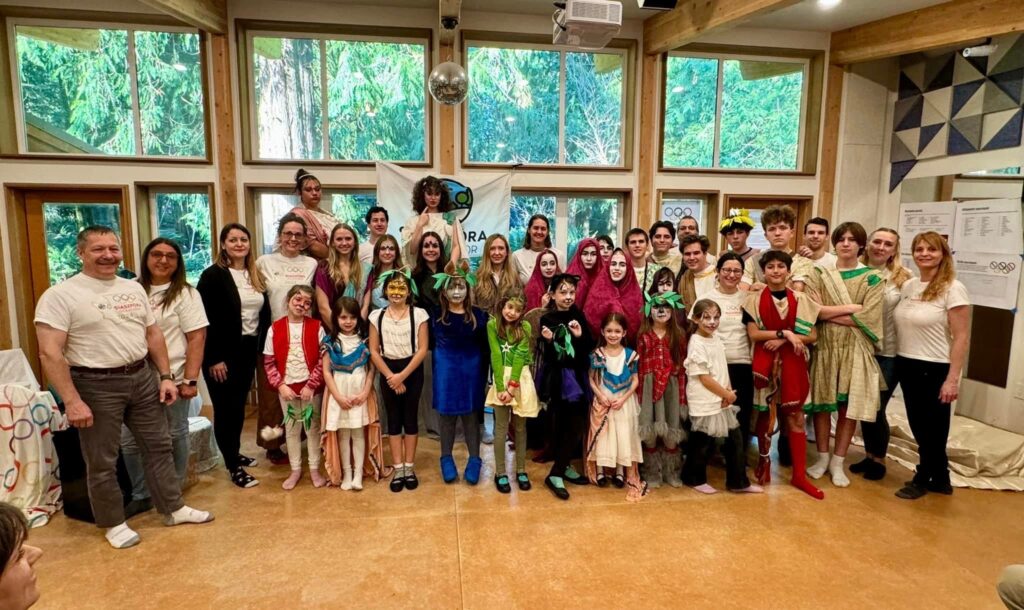
In January, the last event we participated in was a soup-tasting hosted by the Sister Cities organization—Seattle’s sister city is Pécs—where each participating culture prepared and served their traditional soups. In February, we hold a Carnival celebration and burn the traditional kisze effigy to symbolically chase away winter. This March, the scout dinner and the national remembrance of the revolution and freedom fight of 1848 coincided on the same day—we laid wreaths during the day and commemorated 15 March also during the evening dinner. In April, we held an Easter sprinkling and a picnic. That same month, we also participated in the International Children’s Friendship Festival, where each culture had an information table displaying notable items and facts. The Lugosi family prepared our Hungarian table, and our children’s folk dancers gave a very successful performance. Each May, we hold the school year-end celebration and a picnic. In June, the scouts have their hike, and we hold our annual general meeting. In addition, we have some one-off events, for example, this year we are celebrating the 50th birthday of one of our very active community members with a private gathering. Last year, we celebrated our organization’s 40th anniversary with great success and about 150 attendees.
Are all these free events organized by volunteers?
Our events are generally free for HAAW’s members. Non-members pay a minimal entrance fee, calculated in such a way that it’s actually more worthwhile to just pay the annual membership fee—which serves as an incentive, encouraging people to support the association financially as well.
‘You can only truly give your heart and soul to volunteer work if you feel a strong bond with those around you’
Everyone here is a volunteer, giving their time and energy to give something back for what they have received from the community. At least that’s why I do it. Thanks to them, I feel more at home here, even though I’m far from Hungary. I’ve made friends here whom I know I can count on for the rest of my life. Through our regular events, my daughters have developed a strong network of relationships that might not have formed in Hungary. Even though they don’t attend the same school or live close to each other, the shared experiences have brought them closer together. I love being part of a community, I value community-building activities, and I treasure being able to connect with people who have entirely different life stories and perspectives—this expands my own outlook, which I find extremely valuable. I volunteer so that others can experience the same. Most people go home with a good feeling from our events, but many don’t realize how much planning and volunteer work go on behind the scenes. Ideally, that work is enjoyable too—after all, you’re doing it with people you like spending time with. Many of the people I volunteer with aren’t just acquaintances but real friends. You can only truly give your heart and soul to volunteer work if you feel a strong bond with those around you—as we all do this alongside our paid work and families.
In many places, the leadership transition used to be or still is a delicate and difficult matter for various reasons. Did it really go smoothly for you?
Yes, overall, the handover was very positive. The outgoing leaders continued caring deeply about the association’s well-being, and they are all aware that this is something everyone does in their free time. If they said something critical, it was always constructive and never turned personal. Of course, there are always disagreements—inevitable with any transition—but what’s really important is that here, people have been able to express their wishes without hurting others. Even when there’s disagreement, no one lashes out. The people we worked with were all kind and helpful. Another area where things can often go off track is in written communication—especially when generational differences are involved—so we try to avoid that whenever possible. And most importantly, we have a common goal—the functioning of the association. The people currently in leadership mostly have younger, elementary-school-aged children, so naturally, our priority is to create events that support our kids. However, there are older generations as well, who also need opportunities and spaces to come together. And there are those without children who also need ways to connect.
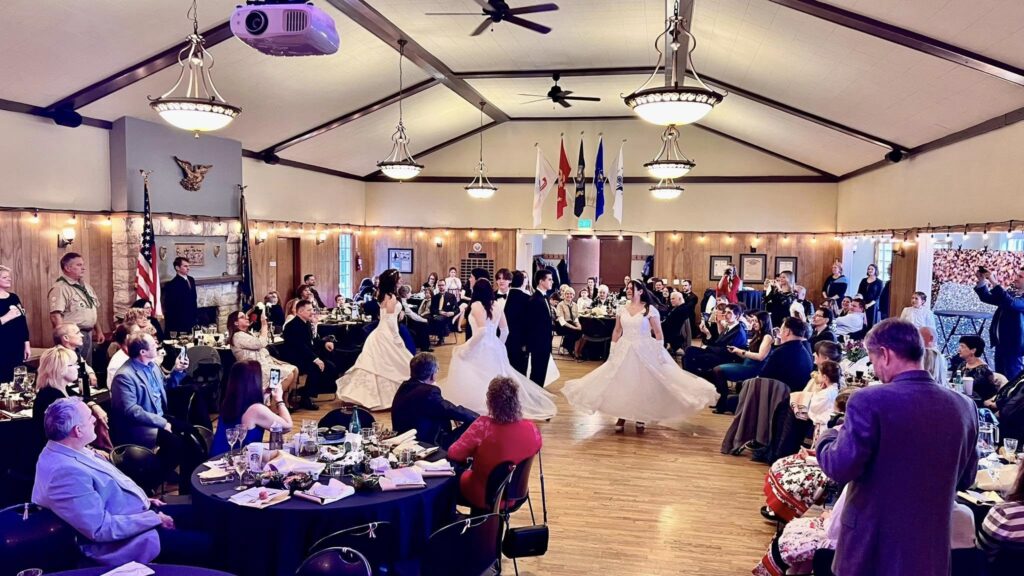
I’ve observed—not only among Hungarians but also among people in general—that the desire to connect is always there, but people rarely get around to actually organizing something. They hesitate to take the initiative or worry no one will come, so they wait—that’s not the best attitude. Bori and I always tell people: if you have an idea or want to organize something but don’t know how to start, just reach out—we’ll help. You don’t need to wait for a crowd; if five or ten people show up, that’s already great. A good example is how our librarians launched a book club. And there are others who occasionally organize hikes.
Back to your family—what language do you speak at home, how do you stay in touch with relatives in Hungary, what are your long-term plans?
Every July, we visit Hungary for three weeks to spend time with my parents and my sister’s family, and to meet up with friends. We stay in Csókakő, near Székesfehérvár. Our daughters absolutely love it—which is no surprise, since they get to experience some of the best things, like the warm beaches. During the year, they stay in touch with their Hungarian-speaking grandparents online, and luckily, the connection is active and lively. Scott also speaks Hungarian fluently; at home, I usually speak to the girls in Hungarian, and he does it in English. The girls switch languages depending on whom they’re talking to. Our older daughter speaks and reads Hungarian very well—fortunately, she loves reading. The younger one prefers English and speaks Hungarian with an accent, but her interest in Hungarian books is also growing.
Our long-term plan is to stay in Seattle. I feel like we’ve finally found our place—our lives are quite well established: kids go to school and participate in sports activities, and my husband enjoys his work. My personal goal is to continue volunteering while also finding paid work, though that won’t be easy, as Seattle is a very competitive city, and these days, thousands of people are being laid off. We’ll see how things unfold, but right now I can’t really imagine us moving back to Hungary—except perhaps for a family emergency.
Read more Diaspora interviews:

